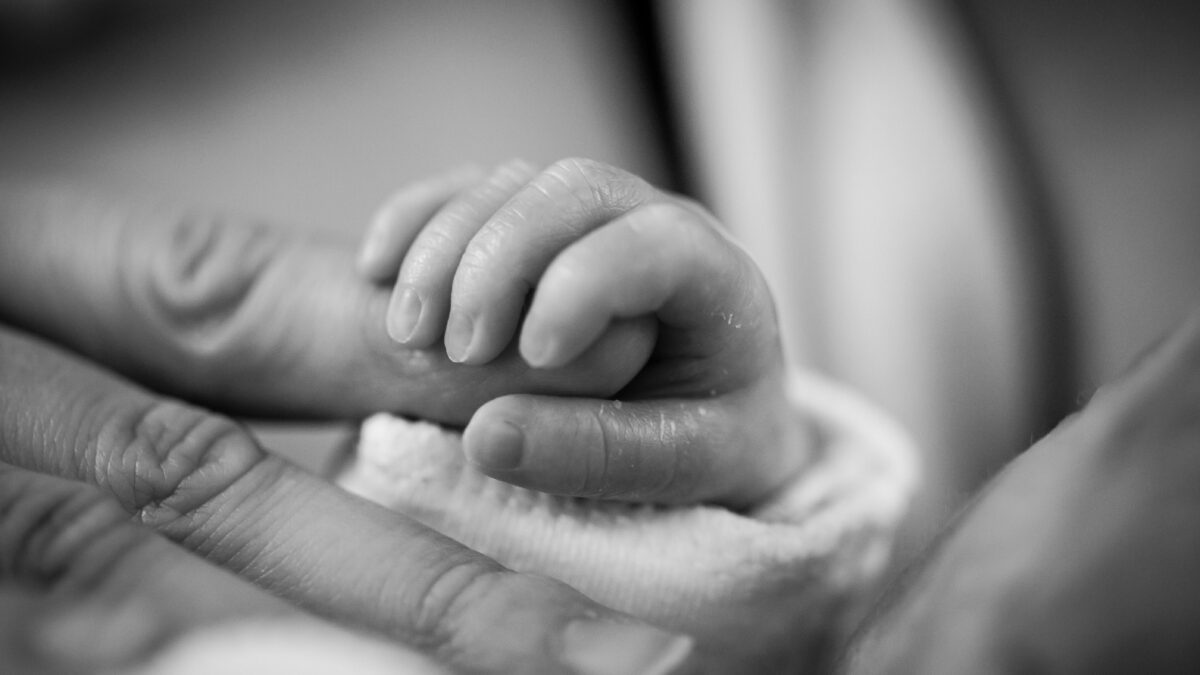Earlier this month, a Texas woman ended the life of her unborn child, who had Trisomy 18 and wasn’t expected to live past birth.
Kate Cox is the Texas mother of two who took her case to the state Supreme Court in an effort to obtain an abortion based on medical needs. Her appeal was blocked because her life was not in danger (the stipulation for legal abortion in Texas), and she crossed state lines to get the abortion for her 21-week baby in utero.
The case has divided the country, as pro-abortion advocates lament the “cruelty” of abortion restrictions and pro-life supporters share stories of children who have lived for years beyond birth with Trisomy 18 and other conditions like it.
“Meet my incompatible-with-life daughter, Bella,” wrote former Sen. Rick Santorum. “Doctors put her on hospice at 10 days old.”
Santorum’s daughter is now 15.
As a mother of two, I can genuinely imagine the terror Cox experienced when doctors delivered the news of a fatal, genetic condition. The anxiety of walking into the doctor’s office, a nurse preparing to swirl cold gel onto your protruding belly and peek inside via ultrasound, is always there.
“Does everything look good?” a mother asks immediately before a visual even pops up on the screen.
For Cox, that anxiety so many feel became a reality when she got the difficult diagnosis.
She could bear out the pregnancy and wait for the baby to possibly pass away in utero or maybe shortly after birth. She could also seek an abortion to speed up what she viewed as the inevitable and possibly save her future fertility.
Cox decided to challenge the state abortion law and lost. She ultimately traveled across the border for the procedure.
Cox knew she could leave the state all along, but she contacted the Center for Reproductive Rights (CRR) when she first discovered she didn’t meet the Texas requirements. At that point, the case became a symbolic fight for so-called abortion rights in red states.
“My question is, if she doesn’t [qualify], who does?” asked Cox’s lawyer, Molly Duane, of CRR.
The legislation, however, was clear enough for this case: Abortion is legal to save the mother’s life or to prevent “substantial impairment of major bodily function.” Had Cox’s doctor believed this to be true, she would have said so. Instead, doctors determined her life was not in danger.
Cox’s medical team advocated for an exception on the grounds that her “future fertility” might be compromised. However, the question arises: Should the prospect of having a healthy child in the future justify killing one currently facing health challenges?
“It is not a matter of if I will have to say goodbye to my baby, but when,” Cox said about her situation.
But, it’s also about “how,” and that matters. How we treat human life, in the womb and beyond, reflects on our collective humanity and the intrinsic worth we attribute to all lives.
Furthermore, Trisomy 18 isn’t always fatal.
“With properly informed consent and a health care team that’s committed to honoring the dignity and value of both mom and baby, mothers can receive quality care in Texas, and their babies can be given a chance at life,” said a representative from the Association for Pro-Life OB-GYNs.
As mothers, we’re geared toward any sacrifice our children might require. Perhaps Cox believed that ending her child’s life earlier was a mercy. She assured the public that this baby was wanted, showcasing that the abortion decision was no flippant choice. I certainly believe her. This was a shocking diagnosis and situation in which to find oneself.
That said, we would never end the life of a newborn as a mercy. Rather, we’d love and care for the child until he or she passed. And there is a growing network of perinatal hospice centers around the country, designed to do exactly that.
By the time her story went public, Cox was 20 weeks pregnant, her fully formed baby the size of a banana and nearing so-called viability. To abort a child at this stage is a gruesome and inhumane process.
In a second-trimester abortion, the baby is pulled out piece by piece. Many are unaware of the brutal means by which late-term abortions are performed, but a baby this large requires force because their bones and bodies are very solid at this point.
Is this really what Cox wanted for her child? Maybe she’s unaware of what abortions at this stage entail. If so, I mourn for her when she discovers the truth.
Early induction was the more compassionate choice. In this case, Cox and her husband could have held their baby and dignified her life with love.
I volunteer with an organization that adopts babies who died at birth or soon after, their bodies abandoned at hospitals by parents in extreme grief or poverty. We bestow them with names, honor them before God, and bury them with dignity, knowing that every life matters no matter how short.
Throughout this entire case, media outlets and legal entities have referred to Cox’s child as “a fetus incompatible with life.” What a tragedy.
She deserved a name. She deserved a chance. She deserved better than her violent ending.









